What I Learned Doomscrolling on the Toilet
Yes, we should all stop reading the news (like this).
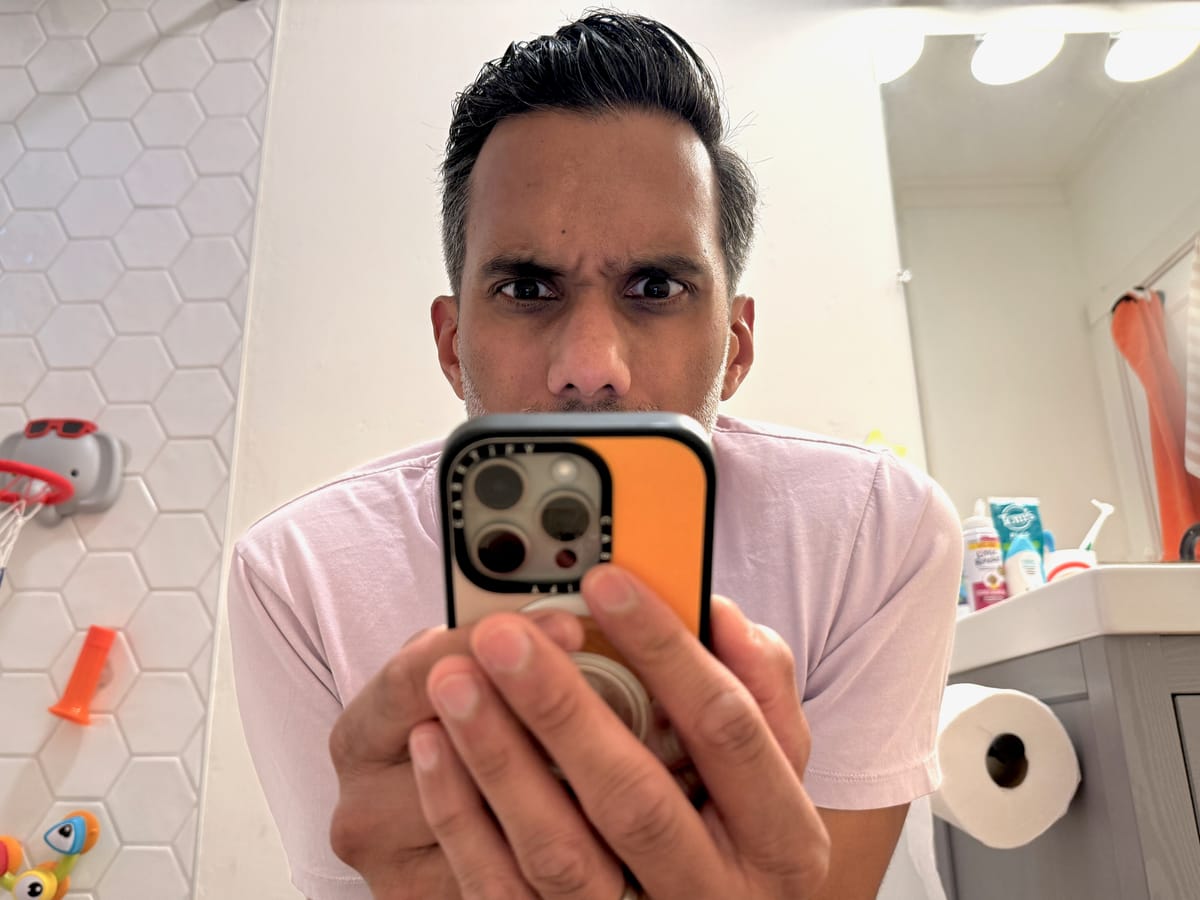
In the last lesson you learned how to connect with other people.
Here, we’re diving into the time of day I feel most disconnected from the people I love.
When I go to the toilet, I instinctively reach for my phone.
Bad habit I picked up…15 years ago?
Oh my gosh…has it really been that long?
It starts with one headline:
- A war
- An injustice
- A crisis
I click. I scroll. I get stressed.
I try to break free.
Switch to Instagram
- Cute baby
- Climate disaster
- A friend’s perfect vacation
- The AI apocalypse.
- Weird political disinformation.
Seventeen minutes later, I’m still on the toilet.
My left leg is numb. My brain’s on fire.
I hear my wife yelling, “Ali, where are you?”
My daughter responds, “He’s probably on the toilet.”
Eventually I limp out:
- Guilty that I’m not doing enough to fix the world.
- Ashamed I just wasted 17 minutes doing absolutely nothing of substance.
- Totally stressed about what comes next.
The Overwhelm That Won’t Stop
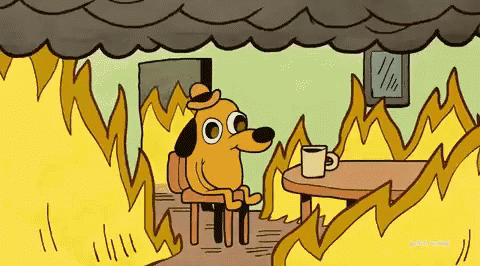
We live in a time where information isn’t just constant, it’s weaponized to harvest your attention.
The “information superhighway” was supposed to free us. But it feels like a prison.
Everything on your phone is designed to make you click, feel, stay, and scroll. Not because it’s good for you. Because the longer you stay, the more money they make from your eyeballs.
And it works.
I know it works because I use the same tools to make my videos:
- An emotional thumbnail and curiosity-driven title
- A strong hook in the first 5 seconds
- A clear promise to keep you watching
- And a cliffhanger at the end to launch the next video
This is literally the playbook YouTubers share with each other and what the platform rewards.
The entire philosophy behind Silicon Valley is this:
Make it super easy to stay. Make it really hard to leave.
I completely recognize this is an uphill battle. But here’s the truth:
No one will protect your attention for you. You have to protect it.
Because if you let the algorithms decide what fills your mental backpack, they’ll stuff it with everything. And you’ll be carrying it all day. Stressed, scattered, and unable to deal with your own life.
Remember how I talked about stress being a loop, like a zebra running to escape a lion? Well, every time you read a terrifying headline, you’re opening a new stress loop. But unlike the zebra, you don’t get to outrun the lion. The threat just lingers, watching you from the brush. No resolution. No closure. Just loop after loop left open, until your brain is running in circles and your body never gets to stand down.
You can’t care about everything. You’re not supposed to.
So what do you do instead?
Here’s the system I’ve developed to help me with my information overload.
Step 1: Choose Information That Works for Your Brain
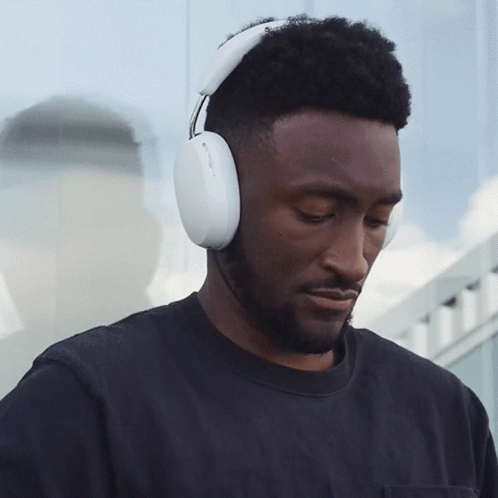
I now consume most of my news through audio. Podcasts, hourly briefings, daily summaries. I listen once to the headlines in the morning after dropping my kids off at school and once on the way to pick them up in the afternoon. No visuals. No autoplay. No algorithmic recommendations.
I’ve learned emotional images and clickbait headlines hijack my brain for the rest of the day. They drain my empathy and I have a hard time getting those horrific images out of my head.
I stay away from social platforms for news. I subscribe to a couple newsletters and podcasts that give me curated, contextual, big-picture updates, not every single breaking news story because honestly, there are too many.
And no notifications! If it’s not a text, a call from a school, or something urgent about work I don’t want to hear about it.
Step 2: Stay Connected to the Causes That Matter
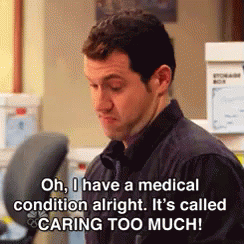
This part’s important:
I haven’t unplugged from the world. I still care deeply.
But I stay updated on specific causes I care about by subscribing to a few newsletters. That keeps me informed without drowning in it. And I pick the causes based on what most impacts me, my family, the communities I belong to, and the issues I have the power, agency, and obligation to speak to.
It’s the difference between 150 open tabs and 5.
Open-tab people, I respect you, but I’ll never understand you.
PROTIP: It’s always better to stay connected with a cause through real people and real community IRL. That might mean showing up in person, volunteering, or joining a group. But I know that’s not always possible (or safe) for everyone. So do what you can, in the ways that work for your life.
I also set boundaries with people who keep sending me traumatic headlines. I’ve told friends and family, “Hey, I deal with a lot of stress in my work and life and these articles are really bad for my brain. Would you mind not sending them to me?”
It makes for an awkward conversation sometimes but I haven’t lost any friends as a result of it.
…or you can just mute them and skip the awkwardness.
Step 3: Rebuild Joyful Spaces
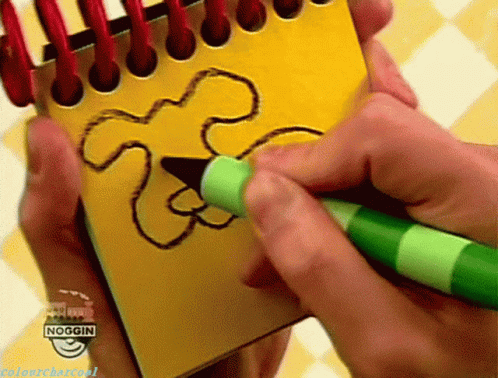
Social platforms aren’t social anymore. They’ve become entertainment-news hybrids, run by algorithms designed to keep you in a cycle of intense emotion.
Even Meta CEO Mark Zuckerberg admitted this during last week’s Federal Trade Commission antitrust trial. He said Facebook and Instagram are now focused on “the general idea of entertainment and learning about the world and discovering what’s going on.” He shared internal data showing that time spent viewing friends’ content is down to just 17% on Facebook and 7% on Instagram.
In other words, social media is serving me a carefully engineered cocktail of garbage:
- Ads I’ll never click
- Opinions I didn’t ask for
- Doom disguised as “what’s happening”
It’s not about connecting me with friends. It’s about keeping me emotionally hooked, mentally exhausted, and easier to manipulate.
So I'm trying really hard to use the internet on my terms.
I trimmed who I follow. I heavily mute accounts on my feeds. I try to keep my apps and followers to the ones that feel like “power-ups”: YouTube channels that teach me storytelling, Reddit threads about cool scifi spaceships, cute dogs.
And I fill my real world space (okay, mostly my bathroom) with stuff I’d much rather get lost in:
- Reading a few pages of a book
- Doodling
- Jotting story ideas
I don’t always do these instead of scrolling. But they’re easier to reach for when I’ve made them visible.
Step 4: Zoom In, Get Local
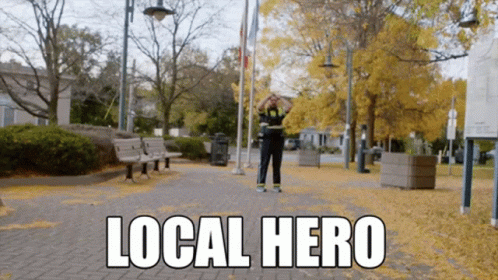
One last shift that really helped?
Looking closer to home.
National news is overwhelming. It’s all massive problems and heavy lifts. But local change? That’s actually within my reach.
I started following local government pages. Subscribed to a neighborhood newsletter. Learned which city reps I can email when something isn’t working.
My daughter’s school needed help getting a crosswalk sign added. I sent a few emails. A few other parents got involved. Now we have a crosswalk.
Small action. Real impact.
Zooming in doesn’t make the big problems disappear. But it reminds you that you’re not powerless. And like we discussed in previous lessons, that matters.
Your Turn
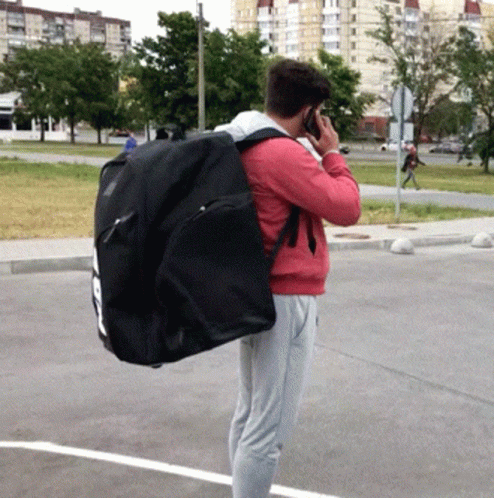
Let’s lighten your mental backpack.
Pick one action to try today:
- Turn off notifications that hijack your focus
- Delete one app that drains your energy
- Subscribe to a cause that genuinely matters to you
- Put a book, a magazine (remember those?), or a doodle pad in your scroll zone
Then email me. I’d love to know what you’re going to try.
Hopefully, I won’t be replying from the toilet.
Though let’s be real, I probably will be.
Maybe it’s time I just leave my phone in another room when I pee.
Next up is the final lesson: how to find meaning when nothing seems to matter.
Talk soon,
Dr. Ali